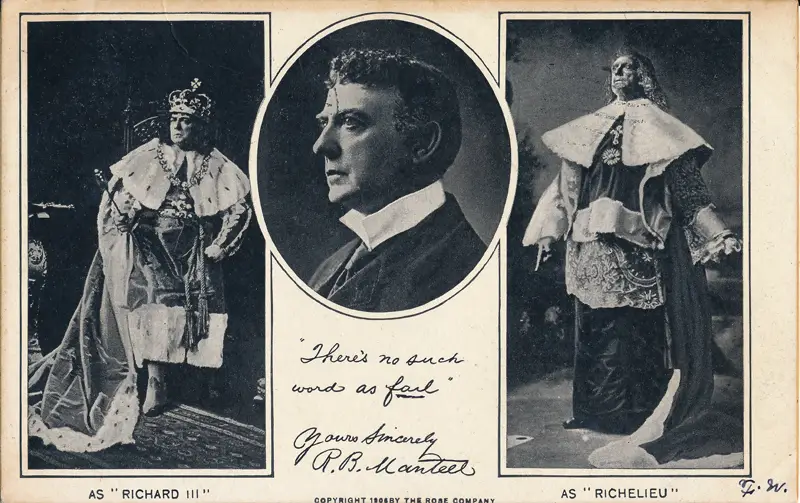That historic house on Avenue D recently in the news because of a donation being made to the Atlantic Highlands Historical Society also had another era of historic significance in its background, one that is especially important and appreciated by the local volunteer fire department. It was the home of famed actor Robert Mantell.
According to “From Indian Trail to Electric Rail,” the hose was built by Capt. James H. Leonard and his wife, Emma T. Leonard in the early 1800s, the house was most recently the St. Agnes Thrift Shop, is now closed and part of the property belonging to the Catholic diocese of Trenton which is negotiating the sale of the tract that includes both the closed Mother Teresa School and the Thrift Shop. Other records indicate Robert Mantell built the house in 1856.
Either way, at the turn of the 20th century, it was home to Mantell, a famed Shakespearean actor, and his equally talented fourth wife, Genevieve Hamper, who was 35 years his junior. She was also known as a most gracious hostess for parties and gatherings at the Mantell home.
Mantell had an interesting childhood and personal life. Born in Scotland, his family moved to Ireland for business reasons when he was young. Not an enthusiast of either discipline or education, he was dismissed from five schools before finally being educated at a seminary. His mother was aghast at his desire to be an actor, and only agreed when he changed his last name to avoid her ‘embarrassment.’ He was married four times and had children by three of his four wives.
Mantell, also know as a dramatist, purchased the home from the Leonard family and had a touring company of Shakespearean actors who traveled as much 10,000 miles a year bringing voices of heralded actors and the lines of the Stratford on Avon Bard into theaters both here and in Canada. Summers, the entire troupe…and there were 35 of them, spent at the Mantell home, practicing their lines and rehearsing their roles for their next tour.
While they summered here, the troupe also became a vital part of the community. They were welcomed by the friendly folks who live here year round, people who were rather in awe of the talent around them. But it was Mantell himself who tuned out to be the hero.
The town had organized its first fire company in 1882, and shortly after, the following year, formed a second company. Both were officially declared a department by 1894.
The equipment had the finest equipment of any in the area for a community of its size albeit before all that motorized equipment.
So by 1911, with a need for more modern equipment, the town realized it simply did not have the money to purchase what was needed. It was Mantell who suggested that his troupe while summering here stage a fundraising Shakespearean play as the perfect way to raise funds for a fire truck fund.
At the time, there were two theaters in Atlantic Highlands, both in the center of town. The Majestic was on First Avenue, the other, the Lyric, was an open air entertainment center that backed up to the Majestic Theater, so playgoers had access to culture and entertainment rain or shine.
It was summer, 1911 when the Lyric was filled to capacity, standing room only, and Fritz Leiber and the rest of the Shakespearean troupe brought MacBeth alive to the Atlantic Highlands outdoor stage. Lieber was recognized as the greatest voice of the day, and had the capability of projecting his voice to the rafters long before the days of microphones and amplifiers.
The entire troupe, all staying at Mantell’s House, which was known as Brucewood, contributed all their talent so the borough could have a motorized fire truck. Genevieve Hamper, Mantell’s wife, brought down the house with her portrayal of Lady MacBeth and people came from throughout the area to view what then became the full dress rehearsal for the Shakespearean troupe’s winter touring program. The play was termed “a cultural and financial success.”
That is why, the Grand View Hose Company, which had been formed in 1893, changed its name officially to the Robert Mantell Company on Oct. 16, 1911.
Mantell died in Atlantic Highlands on June 27, 1928.



